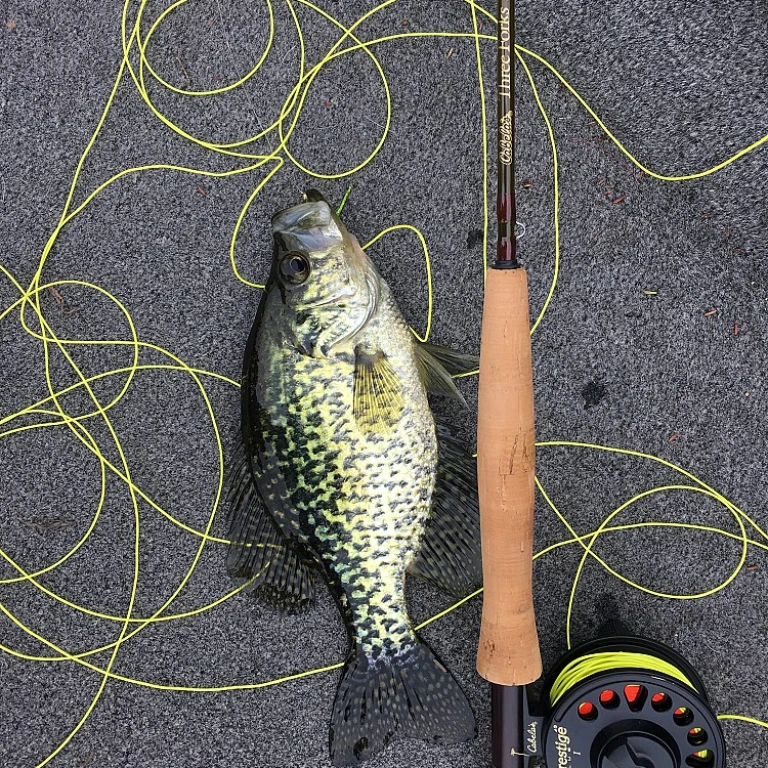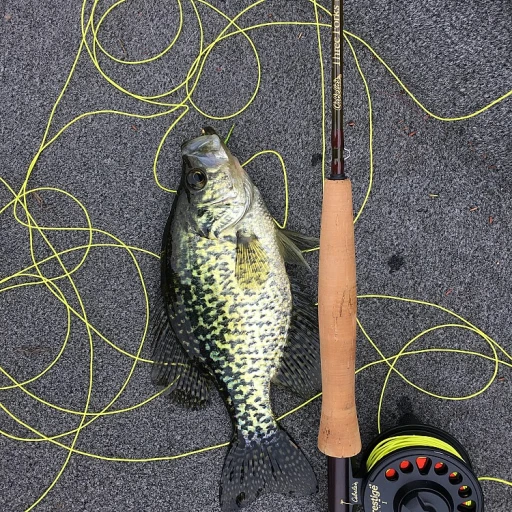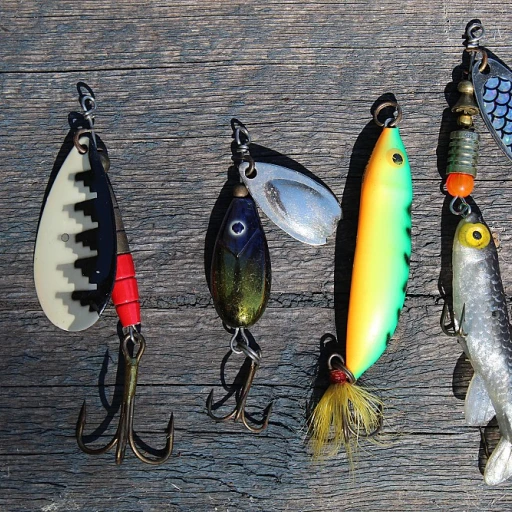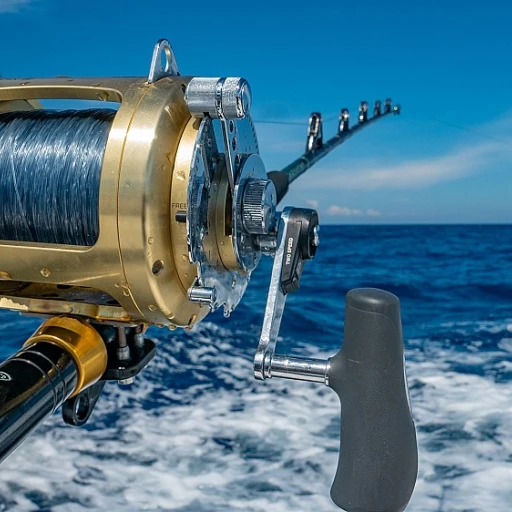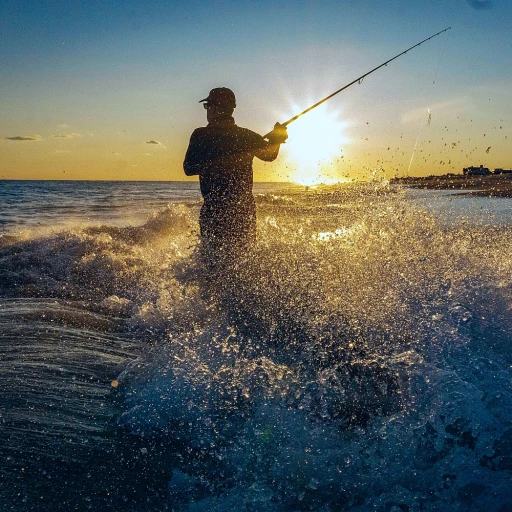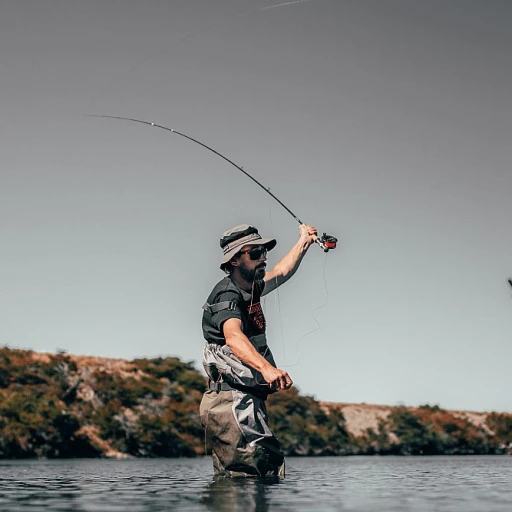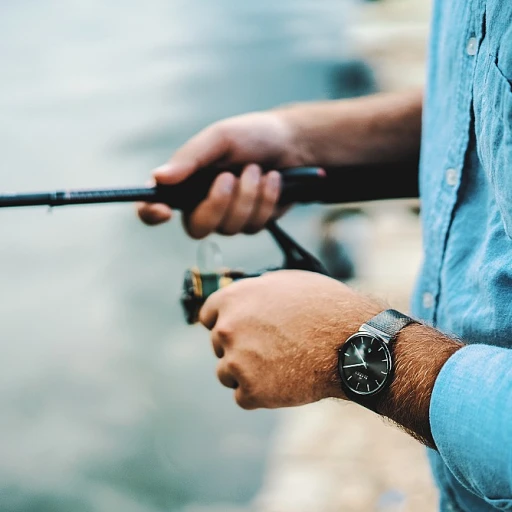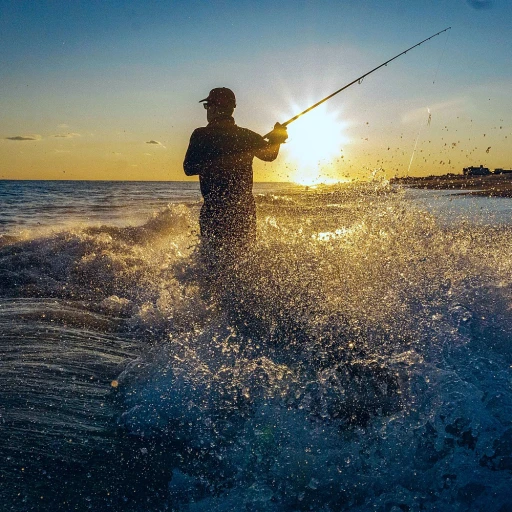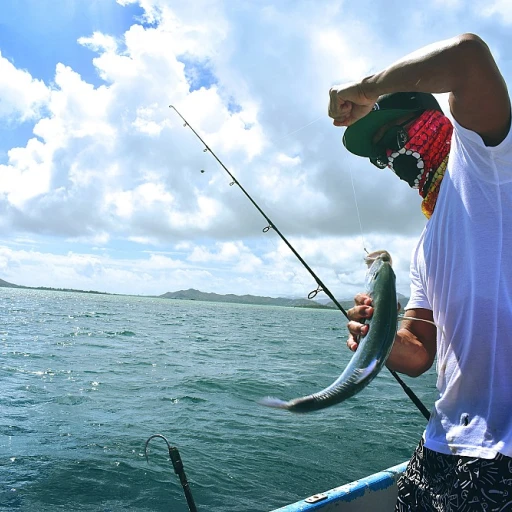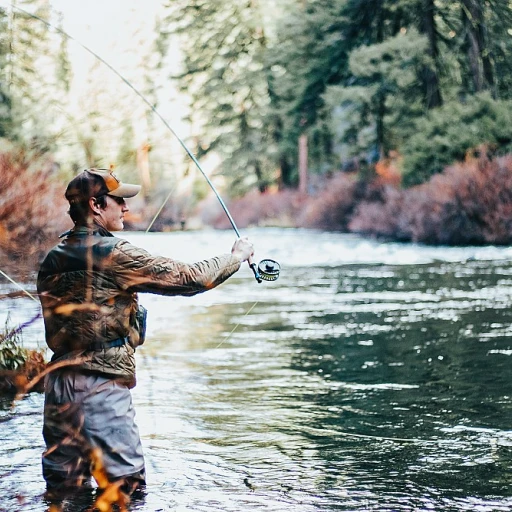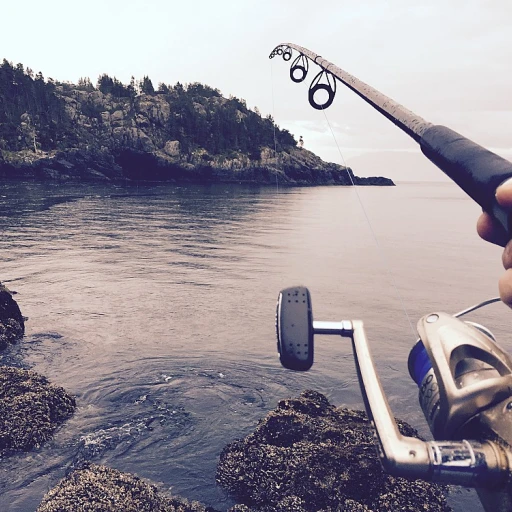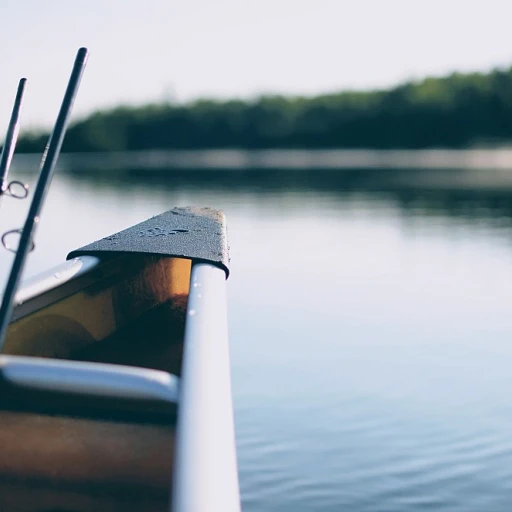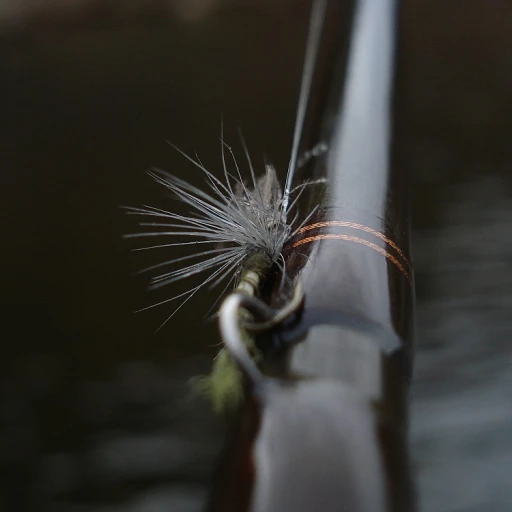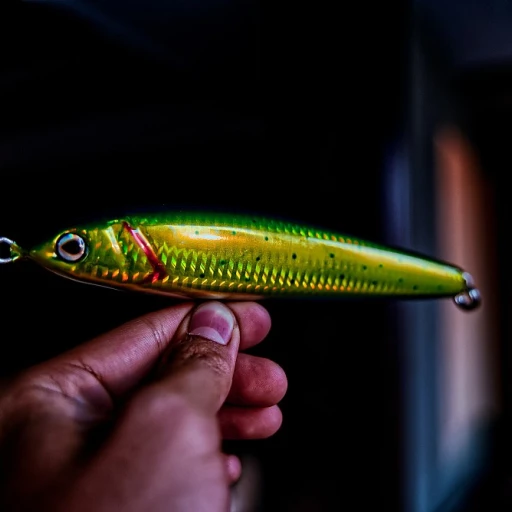
Understanding the Ice Fishing Spear
The Basics of Ice Fishing Spears: Understanding the Tool
Ice fishing with a spear is a time-honored tradition that many enthusiasts enjoy during the colder months. When you're out on the ice, your spear is your primary tool for catching fish beneath the frozen surface. Whether you're after pike or northern pike, the right equipment can make all the difference. The fundamental part of any fishing spear is the spearhead, which often consists of a set of tines. These tines are crucial for effectively catching fish, as they need to penetrate quickly and securely hold the fish, preventing it from escaping back into the icy water hole. Depending on your target, a pike spear, with well-spaced tines, is typically preferred for these agile fish. Materials play a significant role in the durability and efficiency of ice fishing spears. Stainless steel is a popular choice for its resistance to rust and ability to withstand harsh conditions. Many spears also feature a wooden handle or a wood handle for warmth and a comfortable grip. Accessibility is another consideration for ice fishing enthusiasts. With options like "free shipping" and "add to cart" features available online, acquiring the best spear has never been easier. While some opt for modern stainless steel options, the traditional wooden handle spear brings with it an element of nostalgia and craftsmanship. For those looking to explore different techniques and improve their experience, it's important to find the right fishing spear that fits your style and the environment in which you plan to fish. As you dive deeper into the world of ice spearing, consider visiting this guide to enrich your ice fishing setup further.Choosing the Right Ice Fishing Spear
Finding the Perfect Ice Fishing Spear for You
Ice fishing with a spear is a unique experience, allowing enthusiasts to connect deeply with age-old traditions. The right fishing spear dramatically influences your experience, simplifying the spearing process while enhancing efficiency and effectiveness. Whether targeting the elusive northern pike or other fish, choosing the best tool for your needs is essential.
- Material Choices: Steel vs. Wooden Handle
The age-old debate between a wood handle and stainless steel continues. While the wooden handle offers a classic touch and warm grip during harsh feb ice outings, stainless steel spears ensure durability and strength for spearing a challenging fish like pike. - Spear Tines and Tips
Consider the number and style of tines for your fish spear. Fewer tines provide fewer chances of snagging on ice, while multiple spear tine setups increase the likelihood of a successful catch when your target aligns with the fishing hole. - Spear Size and Hole Compatibility
Think about the size of the spear compared to your fishing hole. A spear that’s too big can be more cumbersome to maneuver, weighing you down at a crucial time, especially in darker environments like a dark house or deep ice layers.
Shopping for the ideal ice fishing spear can be overwhelming, but for a smooth start, considering factors like spear construction, tines, and handle design can streamline your search. Dive into reviews and experiences of seasoned fishermen to select the best spear at a competitive price. For those interested in amish ice implements or traditional styles, exploring perfect presents for ice fishing aficionados might spark inspiration and uncover exciting options catering to your preferences and needs.
Techniques for Effective Spearing
Mastering the Spearing Technique for Ice Fishing
Ice fishing with a spear is an art that demands patience, precision, and skill. To perfect this classic method of fishing, anglers need to focus on several key techniques. A steady hand is vital. The pike, a common target, is known for its stealth. Therefore, holding your spear with a firm grip on its wood handle ensures control when it's time to strike. The spear tines, especially those made of stainless steel, provide the necessary weight and sharpness for a clean catch. Timing your strike is crucial. Frequent trips to Michigan or areas renowned for ice fishing often reveal that February is an excellent time for this method, as the fish are more active. Patience is essential; spend time watching the hole, especially in a dark house setting, where your visibility is heightened. Understanding the behavior of fish like the northern pike can greatly enhance your spearing success. By studying their movements, you can anticipate their positions, allowing for a quick and effective strike. For those who are new to ice fishing with a spear, considering the best ice fishing spear sets can make a difference. Opt for spears that come with free shipping options, ensuring convenience and affordability. Additionally, a stainless steel tine ice spear paired with a sturdy wooden handle strikes a balance between tradition and efficiency. Integrating a few of these strategies not only improves your spearing technique but also enriches your overall ice fishing experience. For those looking to explore other innovative fishing methods, understanding the benefits of a 15 horsepower boat motor can further enhance your angling adventures.Safety Tips for Ice Fishing with a Spear
Adhering to Key Safety Precautions on the Ice
Ice fishing with a spear, while exhilarating, requires the utmost attention to safety. As you prepare to head out onto the ice, consider these vital tips to ensure your spearing adventure is both successful and secure.- Check the Ice Thickness: Before stepping onto the icy terrain, ensure the ice is at least four inches thick to support a person safely. This is especially crucial when spearing for species like the northern pike or in states like Michigan, where ice conditions can vary.
- Stay Equipped with Safety Tools: Always have ice tongs and a safety rope handy. A wooden handle on your spear provides an additional safety measure as it tends to float, making it easier to retrieve if accidentally dropped into the hole.
- Wear Appropriate Gear: Dress in layers and wear a flotation suit. February temperatures are notorious for plummeting quickly, and frostbite is a real concern when you're focused on spearing.
- Maintain Clear Visibility: While the thrill of a dark house can enhance your spearing experience, it’s crucial to keep some light source available. It's also advisable to mark your fishing hole clearly to prevent accidental falls.
- Use Quality Equipment: Investing in a stainless steel fishing spear with a solid wood handle and securely fastened spear tines ensures not only better spearing but also minimizes accidents related to equipment failure.
Maintaining Your Ice Fishing Spear
Preserving Your Spear for Longevity
Maintaining your ice fishing spear is crucial for ensuring its longevity and performance. Whether you have a stainless steel spear or one with a wooden handle, regular care can make a significant difference. Here are some tips to keep your spear in top condition:
- Cleaning: After each fishing trip, clean your spear thoroughly. Remove any ice, fish scales, or debris from the tines and handle. For stainless steel spears, use a mild detergent and warm water to prevent rust and corrosion.
- Drying: Always dry your spear completely before storing it. Moisture can lead to rust on steel parts and warping of wooden handles. Use a dry cloth to wipe down the spear and let it air dry if necessary.
- Storage: Store your spear in a dry, cool place. Avoid leaving it in direct sunlight or damp areas, as this can damage both the metal and wood components. Consider using a protective case or sheath for added protection.
- Inspection: Regularly inspect your spear for any signs of wear or damage. Check the tines for bending or dullness, and ensure the handle is secure. Address any issues promptly to avoid accidents during your next fishing trip.
- Sharpening: Keep the tines sharp for effective spearing. Use a file or sharpening stone to maintain a keen edge, especially if you're targeting tough-skinned fish like northern pike.
By following these maintenance tips, you can ensure that your ice fishing spear remains a reliable tool in your fishing arsenal. Investing a little time in upkeep can save you money in the long run and enhance your overall fishing experience.

